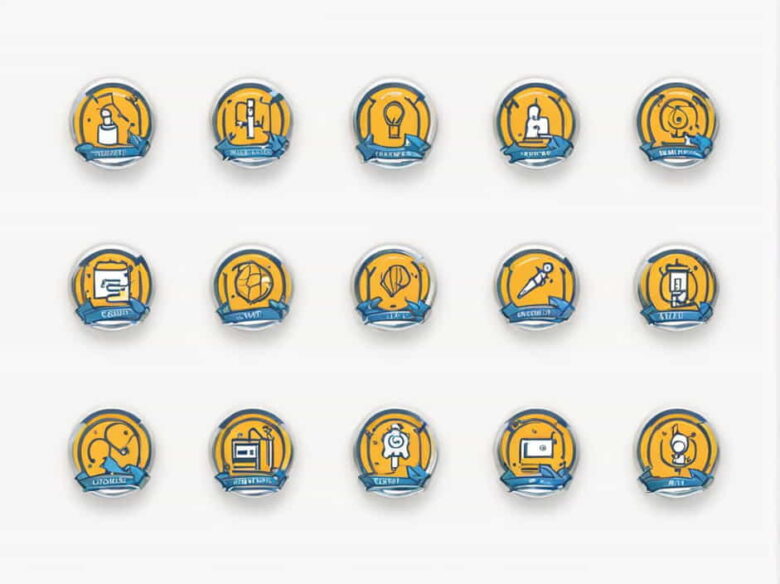Education is an essential part of human development, shaping individuals and societies for centuries. However, to truly understand its impact, we need to explore the roots of the word and the broader concept behind it. This content delves into the etymological meaning of ‘education’ and how its concept has evolved over time.
The Etymology of the Word ‘Education’
The word ‘education’ has its origins in Latin, and its history gives us insight into the true essence of what education entails. The Latin word educatio means a breeding, a bringing up, or a rearing. It is derived from the verb educare, which means ‘to bring up,’ ‘to raise,’ or ‘to nourish.’ In its original context, educare referred to the process of nurturing or fostering development, primarily in a physical or moral sense.
The root word educare is further connected to educere, which means to lead out or to draw out. This aspect emphasizes the role of education in bringing forth potential and uncovering hidden talents, rather than simply filling an individual with knowledge. It suggests that education involves guiding individuals toward their full potential, drawing out their abilities, and shaping their character.
Key Components of the Word
-
‘E’ – The Prefix: The prefix ‘e’ in educare means ‘out of’ or ‘from,’ implying the idea of leading someone or something from within to the outside. In this case, it reflects the belief that education helps bring out the inherent abilities and knowledge that already exist within a person.
-
‘Ducere’ – To Lead: The Latin verb ducere means ‘to lead’ or ‘to guide.’ This highlights education as a process of guidance and leadership. Education is not just about the transmission of knowledge but also about directing individuals on a path of personal growth and development.
Evolution of the Concept of Education
The meaning of education has evolved significantly over the centuries. In its early stages, education was primarily viewed as a way to prepare individuals for participation in society, emphasizing moral values, citizenship, and social roles. As societies grew more complex, the concept of education expanded to include intellectual development, scientific discovery, and professional training.
Education in Ancient Civilizations
In ancient civilizations such as Greece, Rome, and China, education was deeply tied to culture, philosophy, and religion. In Ancient Greece, for example, education was seen as a means to cultivate virtuous citizens who could participate in civic life. Philosophers like Plato and Aristotle discussed education’s role in developing moral character, reasoning, and virtue. They believed that education should aim to shape both the mind and the soul.
In Ancient Rome, education was also viewed as essential for shaping public life and ensuring the continuation of Roman values. The Roman concept of education was centered around rhetoric and oratory, skills necessary for participating in the political and legal spheres.
The Middle Ages and the Renaissance
During the Middle Ages, education was largely controlled by religious institutions, particularly the Christian Church. Monasteries and cathedral schools were key centers of learning, where education was focused on religious teachings and the preservation of classical knowledge. However, the Renaissance marked a shift in educational thinking, with a renewed focus on humanism and the development of a well-rounded individual. This period saw a rise in the study of the humanities, including literature, history, and philosophy.
The Enlightenment and Modern Education
The Enlightenment brought about a profound shift in educational thought. Philosophers such as John Locke, Jean-Jacques Rousseau, and Immanuel Kant argued for the importance of reason, individual freedom, and the development of a scientific mindset in education. Education was no longer seen as solely a tool for moral and civic training, but also as a means to develop critical thinking and personal autonomy.
The Industrial Revolution further transformed education by introducing formal schooling systems designed to prepare individuals for work in an increasingly industrialized society. Education became more standardized and accessible, with a focus on literacy, numeracy, and vocational skills.
Education Today
Today, education is viewed as a multifaceted process that encompasses academic learning, personal development, and socialization. It is considered a fundamental human right, with access to education recognized as essential for economic development and social equality. The concept of education now extends beyond traditional classroom settings, with online learning, experiential education, and lifelong learning gaining prominence.
The Role of Education in Society
The concept of education is not limited to the transfer of knowledge from teacher to student. It is a dynamic process that involves the interaction of individuals with their environment, society, and culture. Education plays a crucial role in shaping individuals identities, fostering social cohesion, and promoting cultural diversity. It prepares individuals to face the challenges of life and equips them with the skills needed for personal and professional success.
Personal Development
Education contributes significantly to personal growth, helping individuals to develop cognitive skills, emotional intelligence, and social competence. It encourages critical thinking, creativity, and problem-solving, all of which are essential for success in todays world. Beyond academic achievement, education helps individuals build confidence, resilience, and a sense of purpose.
Socialization and Civic Responsibility
Education is also a key factor in socialization, the process through which individuals learn the norms, values, and behaviors expected in society. Through education, people learn to interact with others, understand diverse perspectives, and participate in the social and political life of their communities. Schools and universities play an essential role in instilling civic values, such as democracy, equality, and social justice.
Economic Growth and Development
Education is closely linked to economic development, as it provides individuals with the skills necessary for the modern workforce. A well-educated population is more likely to contribute to innovation, productivity, and overall economic growth. Moreover, education has the potential to reduce poverty by providing individuals with the tools they need to improve their quality of life and achieve upward mobility.
The Future of Education
As the world continues to change rapidly, the concept of education must also evolve. The integration of technology, the increasing importance of global citizenship, and the need for sustainability all present new challenges and opportunities for education. Future educational systems will likely need to adapt to new learning environments, emphasize interdisciplinary learning, and promote lifelong education to keep pace with societal and technological developments.
The etymological roots of the word ‘education’ reveal a deeper meaning than what may first appear. Education is not just about the acquisition of knowledge but about the process of nurturing, leading, and drawing out the potential within each individual. Over time, the concept of education has expanded to encompass a wide range of functions, from personal development to socialization, economic growth, and civic engagement. In the future, education will continue to evolve, reflecting the changing needs and aspirations of society. Understanding the historical and conceptual evolution of education helps us appreciate its central role in shaping both individuals and societies for generations to come.



